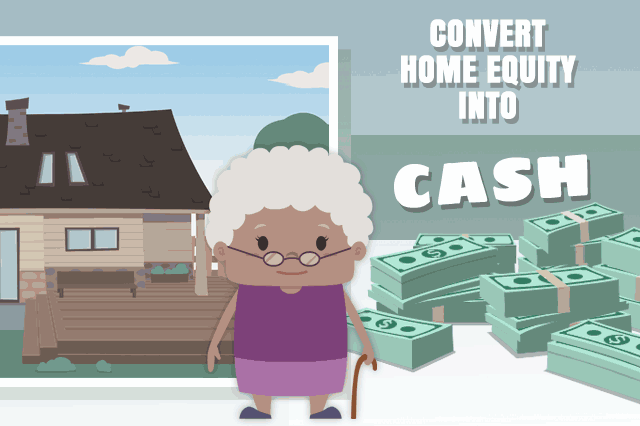FHA Reverse Mortgages for Older Borrowers

Why Consider an FHA Reverse Mortgage?
Borrowers may consider an FHA reverse mortgage because they want to convert the home’s equity into cash for personal needs, renovations to the property, to get money for travel or purchases, etc.
When applying for this type of loan the lender may permit closing costs to be included in the loan amount, reducing the up-front costs to the borrower where applicable.
When there are two borrowers on the loan, the youngest borrower must meet the age requirement.
FHA HECM Loans / FHA Reverse Mortgages: Counseling Is Required
These mortgage loans are more complex than other types of FHA loans, which is why the loan rules for reverse mortgages, also known as FHA Home Equity Conversion Mortgages (HECM) require all borrowers to complete HECM counseling by an approved counselor as a condition of loan approval.
This counseling insures that the borrowers are fully informed as to their rights and responsibilities for the loan including what conditions may force the loan to become due in full-usually as the result of non-compliance with the terms of the loan agreement, but also in the event of the death of the borrower(s).
What are the Mortgage Payments Like on an FHA Reverse Mortgage?
HECM loans do not require a monthly mortgage payment. Instead, the borrower takes cash at closing time in an amount that is determined by the type of HECM loan applied for-adjustable rate or fixed rate.
The mortgage becomes due when the borrower dies, sells the home, or stops using the property as the home address.
The amount of the payment, how many payments, and the conditions of accepting the payments depends greatly on the choice between adjustable rate or fixed rate HECM loan terms.
FHA Reverse Mortgage Requirements
One of the most important things you should know going into an FHA reverse mortgage is that certain terms and conditions apply for these loans; as stated above, no mortgage payment is required for a reverse mortgage as long as the borrower meets the terms and conditions of the loan agreement.
Those terms and conditions include the following:
- Occupancy-the borrower must use the home secured by the FHA reverse mortgage as the primary residence and not leave the property unoccupied for long periods of time.
- The homeowner must maintain any required insurance such as flood insurance or other hazard insurance.
- Property taxes-the borrower is required to stay current on all financial obligations related to ownership of the home including property taxes and any applicable homeowners’ association dues or fees.
There will be a credit check and a review of the borrower’s suitability for the mortgage. An appraisal of the property will be required to establish the home’s market value for purposes of establishing the loan amount.
------------------------------
RELATED VIDEOS:
There's a Difference Between APR and Interest Rates
Choose Your Mortgage Lender Carefully
Getting Started With Your FHA Loan Application

Do you know what's on your credit report?
Learn what your score means.






